What does the election of the first president who publicly supports same-sex marriage mean for LGBT rights in Taiwan?
By Yan Li and Rachel Cheung
On 31st October last year, tens of thousands of people took to the streets of Taipei waving rainbow flags and shouting slogans, not in protest but to celebrate LGBT (lesbian, gay, bisexual and transgender) rights at the 13th Taiwan Pride parade.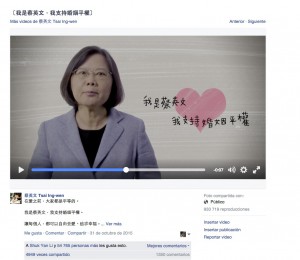
On the same day, the chairwoman of the Democratic Progressive Party (DPP), Tsai Ing-wen posted a video on Facebook declaring her support for same-sex marriage. In the 15-second video, which has been viewed close to a million times on the social media platform alone, Tsai says “In the face of love, everyone is equal”.
Just three months later, Tsai swept the island’s presidential election and became the first Taiwan leader who has publicly endorsed same-sex marriage. It should be a milestone, but some activists view the endorsement as a political move designed to appeal to younger voters, others criticize Tsai for stopping short of making a commitment to push through legislation to legalise same-sex marriage.
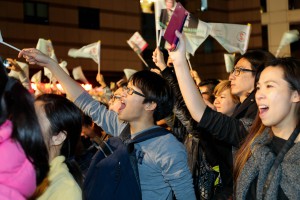
Victoria Hsu, who stood as an openly lesbian legislative candidate on a pro-gay platform, is not optimistic that Tsai’s presidential victory can bring marriage equality to Taiwan. “Too few legislators support progressive family ideas. The Kuomintang is very conservative and DPP has not publicly declared their stance (on marriage equality) as a party,” she says. “DPP did not make a commitment to support marriage equality, so even if the party takes office, the bill will not be passed.”
Currently, a few cities including Taipei and Kaohsiung recognize the household registration of same-sex partnerships. However, the household registration does not grant legal rights to same-sex couples. Hsu founded the Taiwan Alliance to Promote Civil Partnership Rights to advocate for gender and sexual orientation equality and the organization proposed a draft bill for “diverse family formation” to the Legislative Yuan in 2013.
The bill consists of three proposals – for marriage equality, the establishment of a civil partnership system and a multiple-person family system. To date, only the first proposal has advanced past a first reading in the Legislative Yuan.
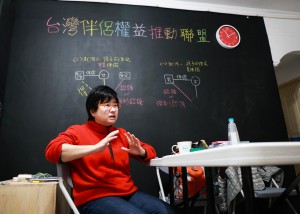
This prospect has alarmed conservative groups and triggered a backlash from some sectors of society. The second and third proposals have not garnered enough signatures from legislators to be tabled in the legislature, as they are more controversial than marriage equality. The proposed “civil partnership” system, aimed at protecting cohabiting couples, would allow two individuals of any gender and sexual orientation to become legally recognized partners without being married. Whereas a “multiple-person family” system would allow two or more people who may not share blood ties to legally form a family.
Hsu, who is also a lawyer, says a “civil partnership” system and “multiple-person family” system would also protect the rights of heterosexuals, asexual people and close friends who do not want get married.” I think what matters most to a family is not sex or reproduction but the promise of taking care of each other. Gender or sexual orientation isn’t as important. When these people choose to live together… their rights concerning taxes, social welfare and healthcare should be protected legally,” she says.
Hsu was one of five openly gay legislative candidates who ran for the Legislative Yuan in this year’s election. All of them stood for the Green-Social Democratic Party Alliance (Green-SDP Alliance).
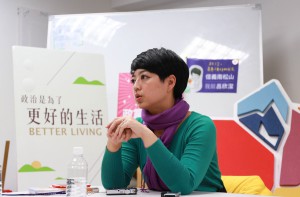
Another candidate, 33-year-old social worker Jennifer Lu, has been advocating for LGBT rights since her university days. She now has more than ten years of experience in social activism. Lu previously worked for the Taiwan Tongzhi Hotline Association, the oldest and largest non-profit organization in Taiwan serving the LGBT community.
“Since I grew up in a middle class family, I was raised in a sheltered environment. Participating in gay movements really broadened my exposure,” says Lu. Through participating in social movements, she met people from all walks of life, including gay men, transgendered people and members of the working class.
But over the years, Lu began to realize that all social movements would hit a bottleneck without change in Taiwan’s political environment. “People at the Legislative Yuan don’t understand what you are talking about. They do not realize that their views are very different from the actual challenges the people face. If we don’t change Taiwan’s top-down and money-oriented political environment, any social movement for the minorities cannot make progress,” says Lu.
She decided to run for parliament to help effect that change. “The gay community needs to participate in politics to influence politics. This also makes society realize we are part of the civil society,” Lu explains. “Taiwanese do not hate homosexuals, but they lack understanding of them.”
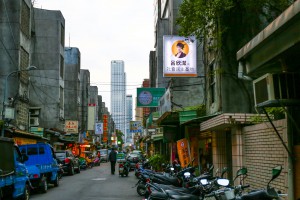
To drive home the point, Lu married her long-term girlfriend in a huge, traditional wedding banquet, held at a public square at the Xinyi district in Taipei, as part of her election campaign. “I wouldn’t hold such a huge wedding if I were not running for election, as rituals do not really matter to me and my partner. But I want to show the society the real life of homosexuals through an open, traditional wedding. There’s no difference from any other weddings, except there are two cute drag queens (entertaining party-goers).”
Although the Green-SDP Alliance failed to win enough votes to secure any parliamentary seats, this year’s election also saw a growing number of candidates from other parties who have publicly endorsed same-sex marriage.
Still, Eagle Kuo, a gay postgraduate student, thinks many politicians may claim to support marriage equality while not having a deep understanding of the issues. “Some organisations claim to be gay friendly…but when they talk about Ma Ying-jeou, they would say he is “blowing China’s trumpet”,” says Kuo. “Why do you vilify politicians you don’t like, by saying they are homosexual or effeminate? By doing this, you are actually stigmatizing homosexuals.”
Kuo says citizens have a responsibility to hold politicians accountable. “Whether it’s the KMT or DPP, if somebody claims (to support marriage equality), we cannot simply think they are sincere and therefore relax. We need to monitor them.”
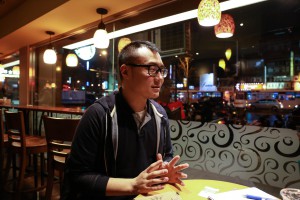
He also feels that marriage equality has dominated public discussion at the expense of other issues related to sexual minorities and gender. “Marriage equality is very easily discussed. But other issues therefore become marginalized,” says Kuo. He cites HIV/Aids and sex workers’ rights as examples.
As a teenager, Kuo experienced discrimination at school when rumours about his sexual orientation spread. He pretended to be straight and saw his efforts pay off as he regained his friends. But he was miserable, knowing that friends liked him for someone he was only pretending to be. It was only after he graduated that Kuo was able to come out to a close friend.
For Kuo, education is more pressing and important than legislation. “Even if same-sex marriage (legislation) is passed, if discrimination still exists in the society, there will still be homosexuals who do not dare get married. They will still be afraid of societal pressure and cannot be themselves.”
Despite the progress the LGBT community has made, the community still encounters strong opposition in society. The Faith and Hope League (FHL), a political party founded last year with a mainly Christian membership, started a petition last November. Called “Protect Families”, the petition urged the government to conduct a public referendum on the “diverse family formation” bill and managed to get 180,000 signatures in less than a month.
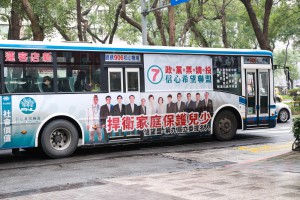
The party’s major slogan is “defend families and protect children.” The director of FHL, Spencer Chang says the party wants to stop the “diverse family formation” bill. Chang says, “We are not against homosexuality, they can live whatever way they like, but we oppose the draft bill which will destroy our family system that has existed for thousands of years.”
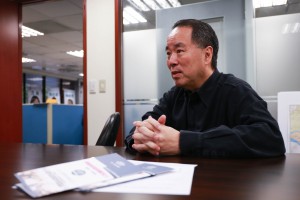
Chang stresses that FHL does not discriminate against homosexuals. He says the league mainly opposes the second and third proposals of the bill, which involve amendments of the Civil Code related to family formation. “If (the bill) was just about same-sex marriage, it would have encountered less opposition.” he says.
Even though Chang opposes the bill, he strongly believes the issue should be decided by a civil referendum because this would be democratic. “If the people of Taiwan reach a consensus and agree that the bill should be passed, then we will not oppose it. But I think it should not be up to 113 legislators to decide. It should be the people of Taiwan.” He adds that he will accept the results of a referendum, whether it is for or against the bill.
Even among Christians, the issue is divisive. Arthur Chang, a university student born and raised in a Christian family, thinks society is divided along generational rather than religious lines. “I think the younger generation is more seeking to understand them (LGBT),” says Chang.
Chang attends a small conservative church in Taiwan and says he believes the Bible does not condone homosexual behavior. However, he believes society should not marginalize sexual minorities. Chang says he would vote “Yes” if there were a civil referendum on the bill. “I think voting no, for me, would communicate the wrong message at this juncture. Voting no would indicate to LGBT people that we don’t want you,” says Chang. “I would not make them feel like they’re somehow secondary to ordinary citizens.”
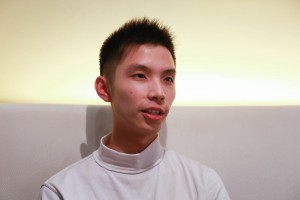
For Chang, it is important that society accepts the LGBT community. “From my best understanding right now, it (the bill) doesn’t produce more harm than good. I feel like the society should be in a posture of acceptance first. Once the society has a posture of acceptance, we can have dialogue and understanding of each other.”









































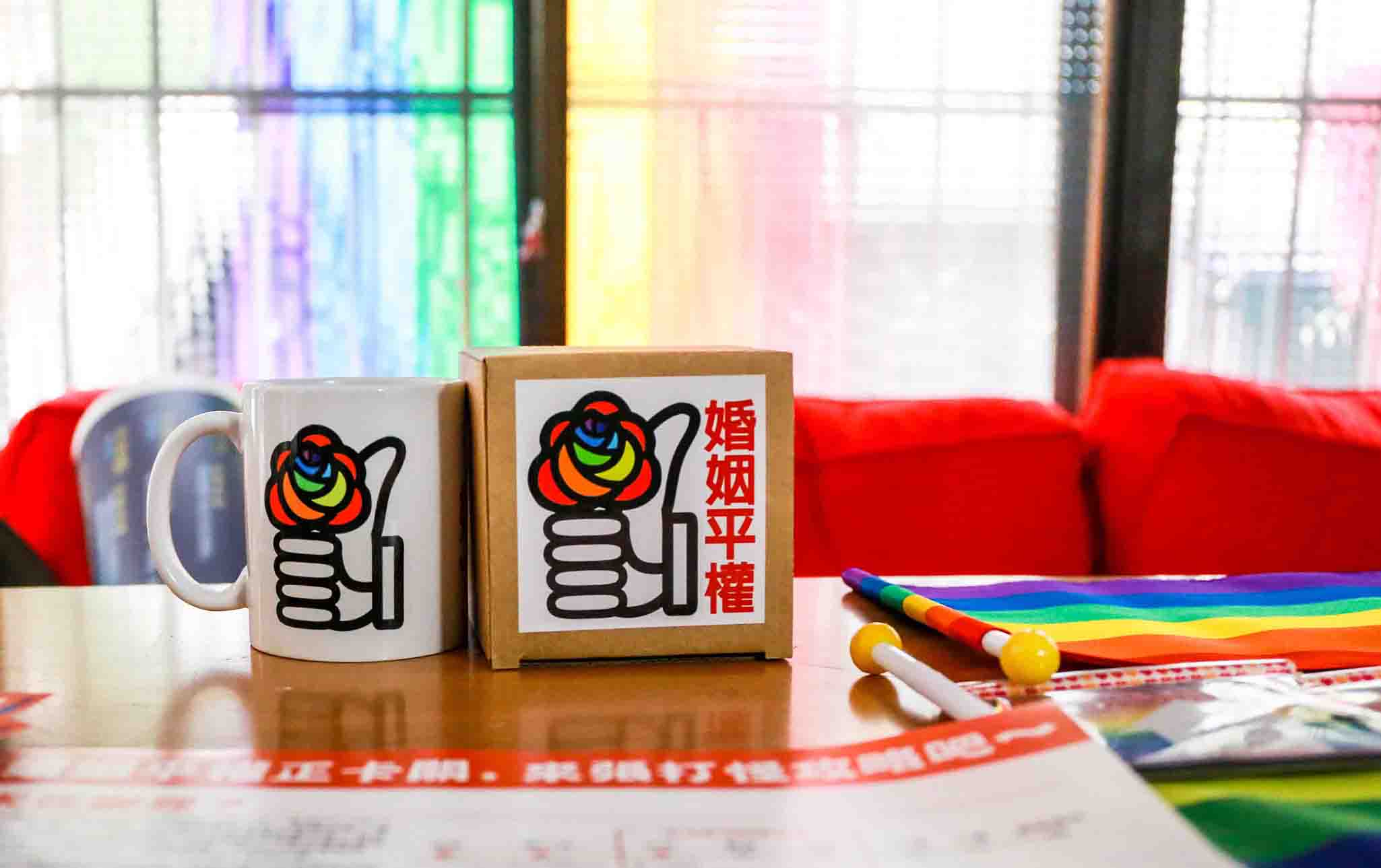





I think that the household registration system is the path forward. Taipei, Kaohsiung, Taichung, and (since last week) Tainan and New Taipei, have all launched household registration. The roots of a national system have already started with Taipei and Kaohsiung announcing that they’ll share their registration systems with each other and with whichever cities wish to join. Taoyuan is also open to it.
This means that all of Taiwan’s special municipalities (the largest cities) are or will be registering same-sex households for medical and other purposes and will share those registrations with each other. That’s the national system that will make its way to other provincial cities and counties. And it’s all happening even before Tsai and the DPP majority take office.